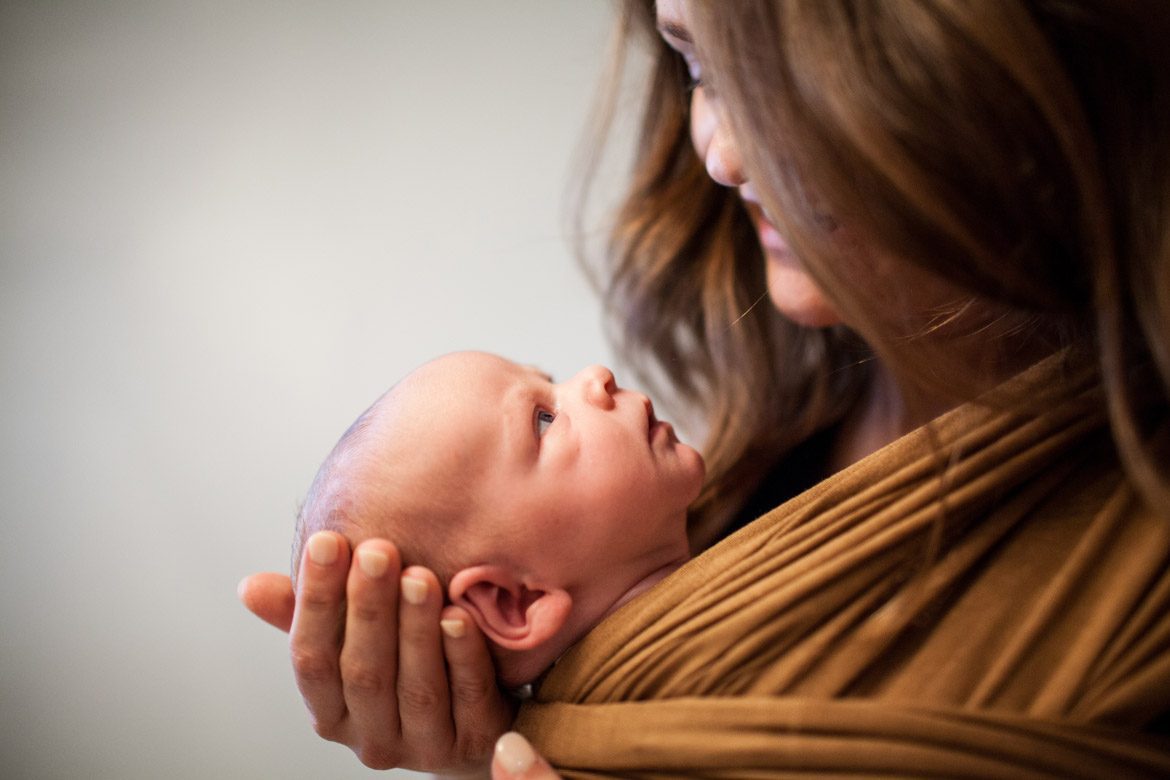By Genevieve Simperingham. This piece was first published in an early issue of The Natural Parent magazine.
Dr Gordon Neufeld is one of the leading lights in the paradigm shift from the behaviourist approaches to the attachment and relationship based approaches in parenting, teaching, psychology and therapy. His work particularly speaks to the parents and professionals who know in their heart that the quality of love, caring and responsiveness in the caregiver child relationship is at the core of the child’s healthy emotional and social development.
I can’t claim to do a good job of representing Gordon Neufeld’s work, and have the conflict of wanting to share some of what I’ve gained with you, while at the same time aware of the many limitations of sharing it through my own perceptions and interpretations, and the limitations of giving just a glimpse into theories that he has spent decades developing and distilling. Yet, if some of what I share resonates with your own beliefs and values, know that there’s much to be learned both from his book Hold On To Your Kids, which he co-wrote with Dr Gabor Mate, and there’s also a generous sharing of his talks on YouTube.
The ultimate task of emotion is to “grow the child up”.
One of the primary principles of Dr Neufeld’s attachment-based developmental model is that healthy emotional balance results from the expression of emotions, not from reason or perception. He cautions against telling children to “calm down”, “cut it out”, “be brave” and other messages that inhibit the child’s expression. Some of the impacts of thwarted expression are displaced expression (including aggression), flattened affect (depression) and failure to adapt to life’s circumstances. He describes how separation is the greatest source of alarm and frustration for children, and that the most pressing problem for the emotional brain to fix is separation from those a child is attached to. He advises avoiding or reducing unnecessary separation to take pressure off the limbic system, and to equally figure out how to stay close when apart, and how to “bridge what could divide”.
As people naturally do, my mind was busy comparing with my own beliefs. Most of his concepts were very familiar, yet his language is very different, so I worked to interpret his messages into my own language and my own frames of reference. To me, bridging what could divide spoke to the importance of a parent maintaining connection with one’s child throughout the daily challenges of life like parent and child experiencing conflicting wants and needs, having very different perceptions of time, managing the discipline related conflicts, the physical separations and emotional ruptures. How can a parent show their child that the relationship is more important than the child’s actions, that they are still loved, cared for and truly held in a good light through it all? He advises telling one’s child; “I’m looking forward to dinner with you this evening” or “breakfast with you in the morning” and of course the heart melting smiling eyes; “collecting the eyes”. He recommends expressing our regrets after the emotional ruptures, yet not asking the child for forgiveness as this puts the weight of reconnection on the child’s young shoulders.
I was really pleased that so much of what he spoke about affirmed that which I so strongly believe and have seen the evidence of in my own family life, as well as through my work with so many parents. I could relate so much of what he shared to other trainings and study, particularly Aletha Solter’s Aware Parenting, many of the models taught in my psychosynthesis training, many echoes from the Heart to Heart Instructor Training with Robin Grille and my study of attachment science in general. It’s an exciting time when so many philosophies from different disciplines are coming together to provide such a strong argument that the strength and warmth of the parent-child connection, free of the disconnection caused by punishments, creates the most fertile environment for the child’s growth and development.
It’s an exciting time when so many philosophies from different disciplines are coming together to provide such a strong argument that the strength and warmth of the parent-child connection…
The function of the alarm system is to move a child to caution.
Dr Neufeld talks about how the child’s ability to feel and express their emotions (as the parent values and supports that expression) allows them to preserve and enact their healthy natural instincts. An important function is at play, for instance, when the child’s emotions move them to caution when facing alarm. The child who feels and can express their alarm and fear is much more equipped with taking the necessary actions to keep themselves safe. He describes the example of a three year old who wants to climb anything and everything, who then climbs to the top of a certain rock, he then looks down, hesitates and tells his granddad that he’s scared, so he retreats and finds another object to climb that’s at the right risk vs safe edge for him.
Understanding juvenile delinquents.
He shared many insights about the troubled adolescents that he worked with in prisons (in his role as psychologist) who were highly defended against their vulnerable feelings. He described how they were unable to express that they were scared or anxious or sad, that they had sadly “lost their tears”. They likely never developed a feelings vocabulary but experienced “more wounding than they could bear”. Brain scans show that the prefrontal cortex of many of these youth is similar in size to that of a four year old, reflecting their arrested emotional development. But the remedy doesn’t lie in punishments or reasoning, but in the emotional safety in an attached relationship, only with this support can a child, adolescent or adult learn to bravely feel and express their more vulnerable feelings. To again quote Dr Neufeld: “The bully who truly finds their tears will be a bully no more.”
When a child feels no fear.
Dr Neufeld describes how parents can “overwork the alarm system” by alarming their child too much. All parents will have moments where they raise their voice to caution their child when facing danger, yet many parents raise their voice way too much, sending (especially the more sensitive child) into alarm overdrive. The child’s instinctive alarm system can go into defense, resulting in a shutdown which looks like defiance. This can also happen through over-exposure to violence (on screens or real life) that’s more than a child can process. The child can lose touch with feeling the caution that keeps them safe. When this happens, the child’s fears and anxieties are driven underground, yet often manifest as irrational fears, or compulsive or overly controlling behaviours, or adrenaline seeking risky behaviours. The shutdown of the alarm system can result in an inability to read the cues of danger or lack of invitation from others. Yet when the alarm system is working as it should, the child is better equipped to read the dangers in the school or other settings and avoid the people and places that provide increased danger. When parents can’t move their child to caution, they tend to yell more, exasperating the problem, instead of prioritising connection and “collecting the eyes” before engaging in the communication.











